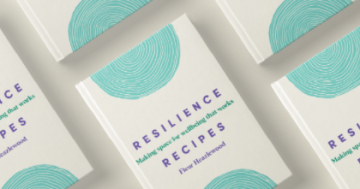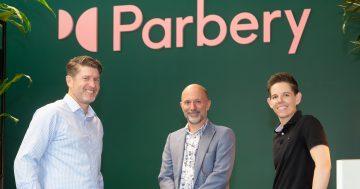Brian de Haaff* says stress results from an inverse relationship between the demands of the job and the joy it is delivering. Being overworked and unfulfilled is kindling to the burnout fire.
 Burned out on burnout?
Burned out on burnout?
No, that is not a typo. You read it right.
This person is smouldering; that person is about to flare up, and over there Sam took a six-month sabbatical.
Spontaneous combustion — narrowly avoided.
Everywhere you look there is another article about job burnout. Consider these recent headlines.
How a Burnout Culture Led to Record Attrition; A Psychotherapist Shares 7 Signs You Are Suffering Job Burnout and To Reduce Burnout on Your Team, Give People a Sense of Control.
We all know that the concept of burnout is not new.
The b-word was first used in the 1970s by researchers to describe the effects of long-term, unresolvable job stress.
Usually, this stress is a result of an inverse relationship between the demands of the job and the joy it is delivering.
Overworked and unfulfilled — more kindling for the fire.
I can empathise with people who are stuck in this simmering place, but here is the thing — if you want to be wildly successful, you cannot stop working.
As I wrote in my book Lovability: “The idea that you can work less and build greatness is fool’s gold.”
By greatness, I am referring to big accomplishments.
This could be building an organisation that delivers real value, or directing a team that improves youth education programs.
For me, it was the former. I co-founded Aha! five years ago with Chris Waters.
We both worked 12-hour days in the beginning and we frequently work 12-hour days now. I am working on this post on a Saturday.
This is not a coincidence — I work a few hours most weekends.
So, how do you work all the time and avoid burnout? Quite the paradox.
I believe that there is no such thing as work-life balance.
You cannot divide your life into discrete pieces. The best we can do is pursue sustainable happiness as a whole.
What you are working on should define you. It should shape you.
Bold ideas demand changing the status quo and disregard for even your most trusted advisors who tell you it cannot be done.
So how do you work all the time, consistently put in the hours, and still make space for what is fresh and new?
The reality is that you will need to do less of something else — sleep, time with friends, ongoing education, hobbies, etc.
Be honest with yourself and then make the cuts.
You need to clearly see the future you are working towards.
This kind of clarity inspires you to keep working even when it is not obvious you will get there.
Whatever it is, the future needs to be deeply important to you. I might even call it an obsession.
This level of passion will sustain you and help you attract others with the same dedication and focus.
Vision and passion are important, but you need a team that sees the future too.
You set clear goals and initiatives, then you give the team space to make the work their own.
The journey to sustainable happiness requires small breaks.
I said I do not believe in work-life balance, but I also believe we need to see ourselves clearly and be responsible for our health.
You cannot cut out every commitment in favour of work.
You just need to choose wisely, which requires knowing what is truly important to you.
For example, I schedule exercise and family time into my daily routine.
I ride my bike or work out six days a week and eat dinner with my wife and kids almost every day.
The hardest part is knowing when to vacate your vision or responsibilities.
These are the types of realisations that warrant sadness and tears.
Sometimes it means that you gave everything and it still was not enough.
Or maybe you gave everything and it was time to let someone else drive towards the vision.
There is honour in knowing when it is time to gracefully step aside.
It can be excruciating, but do not mistake it for burnout.
Work is not always play — though we wish it could be. This is true even for those of us who find great joy in what we do.
Thousands of people have the same skills you do; hundreds have similar ideas and more money, but not everyone can make the best decisions and work the hardest.
Building something meaningful requires effort. This type of effort is ongoing — think ultra-marathon, not a five-kilometre fun run.
So you need to ask yourself: Is this the type of effort I want to commit to an idea that I think will change everything?
The answer will determine if you can always work and avoid burnout.
*Brian de Haaff is the Chief Executive of cloud-based software company Aha! He can be contacted on Twitter @bdehaaff.
This article first appeared on the Aha! company website.











